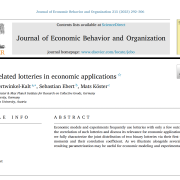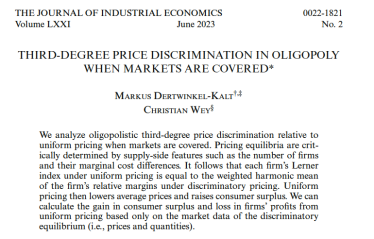Article 'Salient Cues and Complexity' accepted for publication in Management Science.
Important decisions are often complex, and previous findings suggest that complexity can influence economic decisions. However, it remains an open question as to when and how exactly complexity plays a role. We hypothesize that salient cues mitigate the effect of complexity on decisions. We derive this hypothesis theoretically from the literature and experimentally test it in the context of portfolio decisions.








